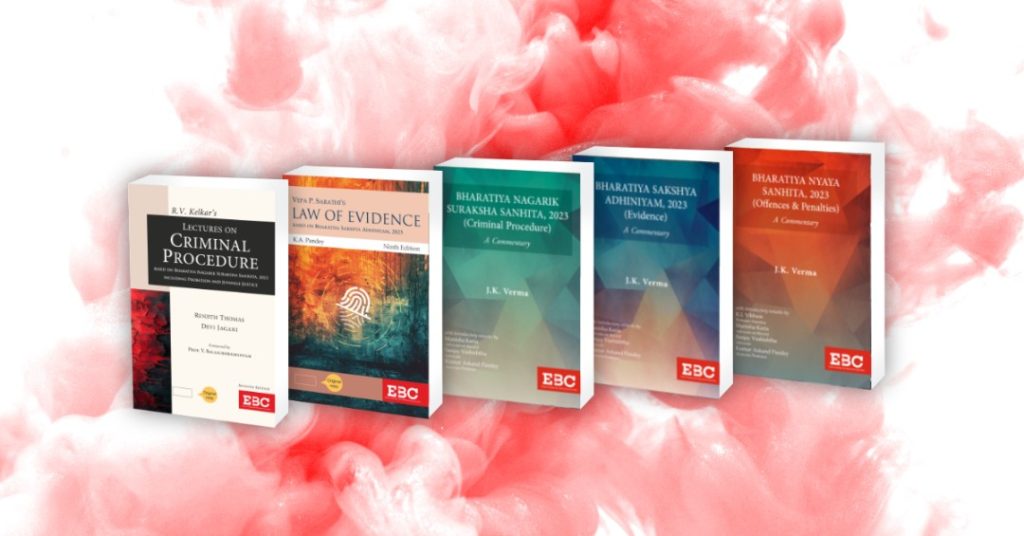
This is your most comprehensive, all-in-one resource that explains criminal law in India — its structure, key acts, rights of the accused, stages of trial, and important case laws.
What is criminal law?
Criminal law is a branch of law that deals with acts considered harmful to individuals, society, or the state. It outlines offenses, prescribes punishments, and governs the legal procedures for investigating, prosecuting, and adjudicating criminal conduct.
In India, foundational elements were historically structured under the Indian Penal Code, 1860 (IPC), the Code of Criminal Procedure, 1973 (CrPC), and the Indian Evidence Act, 1872 (IEA). These British-era statutes provided the backbone of criminal justice for decades.
However, from 1 July 2024, India has implemented a sweeping legal reform through three new centre:
- Bharatiya Nyaya Sanhita (BNS), 2023 replacing the IPC
- Bharatiya Nagarik Suraksha Sanhita (BNSS), 2023 replacing CrPC
- Bharatiya Sakshya Adhiniyam (BSA), 2023 replacing the Evidence Act
Key Principles of Criminal Law in India
Criminal law in India is grounded in well-established principles that aim to balance the rights of the accused with the interests of society. These principles are reflected in statutes like the Bharatiya Nyaya Sanhita, 2023 (replacing IPC), the Bharatiya Nagarik Suraksha Sanhita, 2023 (replacing CrPC), and the Constitution of India.
1. Presumption of Innocence
“Innocent until proven guilty”
In Indian criminal jurisprudence, every accused person is presumed innocent until proven guilty in a court of law. This principle is closely linked with Article 21 of the Constitution, which guarantees the right to life and personal liberty.
2. Burden of Proof Lies on the Prosecution
The State must prove guilt beyond reasonable doubt
Under Indian law, it is the duty of the prosecution (usually represented by the State) to prove the guilt of the accused. The accused is not obligated to prove their innocence, except in certain exceptional cases (e.g., under special laws like NDPS).
3. Mens Rea and Actus Reus (Intention + Act)
Both mental and physical elements are required for a crime
Indian criminal law, like most legal systems, requires:
- Actus Reus – a guilty or wrongful act
- Mens Rea – a guilty mind or intent
Unless both are present (except in strict liability offences), there can be no criminal liability.
4. Principle of Legality (No Crime Without Law)
“Nullum crimen sine lege, nulla poena sine lege”
A person can only be punished if their act was defined as a crime under Indian law at the time it was committed. This is derived from the rule of law and protects against retrospective criminal legislation, prohibited by Article 20(1) of the Constitution.
5. Equality Before the Law
All citizens are equal in the eyes of Indian law
Article 14 ensures that no person, regardless of caste, religion, gender, or social status, receives special treatment in criminal matters. The law applies uniformly.
6. Proportionality of Punishment
Punishment must be fair, not excessive
The Indian legal system believes punishment should correspond with the gravity of the offence. Courts often refer to sentencing guidelines and judicial precedents to ensure fairness in sentencing.
7. Protection Against Double Jeopardy
A person shall not be tried twice for the same offence
Under Article 20(2), Indian law guarantees that once a person has been convicted or acquitted by a competent court, they cannot be tried again for the same offence.
8. Right to a Fair Trial
Ensured by the Constitution and criminal procedure laws
A fair trial includes:
- Right to be defended by a lawyer (Section 304 BNSS / CrPC)
- Public hearing in an open court
- Right to cross-examine witnesses
- Impartial and independent judiciary
This is also protected under Article 21.
9. Right Against Self-Incrimination
“No person accused of any offence shall be compelled to be a witness against himself”
This is protected under Article 20(3). It prohibits forced confessions and ensures that accused individuals cannot be coerced into testifying against themselves.
10. Right to Speedy Trial
Justice delayed is justice denied
Although not explicitly mentioned in the Constitution, Indian courts have interpreted Article 21 to include the right to a speedy trial. This principle is reinforced in the Bharatiya Nagarik Suraksha Sanhita, 2023, which sets strict timeframes for investigation and trial.
Stages of a Criminal Trial in India
A criminal trial in India is a structured process that ensures justice is served fairly and efficiently. It begins with reporting a crime and proceeds through several key stages, culminating in judgment and possible appeal.
1. Filing of the First Information Report (FIR)
- Section 173, BNSS (formerly Section 154, CrPC)
An FIR is the first step in initiating a criminal case. It is a written document prepared by the police when information about a cognizable offence is reported.
2. Investigation by Police
- Includes collection of evidence, witness statements, arrests (if needed), medical examination, and site inspection.
- Police may seek forensic analysis, especially mandatory in serious offences (as per new BNSS provisions).
- Investigation must be completed within 90 days, extendable in complex cases.
3. Filing of Chargesheet or Closure Report
- Chargesheet: Filed if enough evidence exists to prosecute the accused.
- Closure Report: Filed if no evidence is found; the case may be closed.
4. Cognizance by Magistrate and Summoning of Accused
The court takes cognizance of the offence, which means it formally begins judicial proceedings.
- If the case is maintainable, the court issues summons or warrants to call the accused.
5. Framing of Charges
- The judge reads out the charges based on the FIR and evidence.
- Accused can plead guilty or not guilty.
- If charges are not clear or unsupported, the court may discharge the accused.
6. Trial (Examination of Witnesses and Evidence)
a. Prosecution Evidence
- Witnesses for the prosecution are examined (chief examination, cross-examination, and re-examination).
- Documentary and material evidence is presented.
b. Statement of Accused (Section 316 BNSS)
- Accused is given a chance to explain the evidence against them (no oath is administered here).
c. Defence Evidence
- Accused may present witnesses and evidence in their defence (optional).
7. Final Arguments
Both the prosecution and the defence lawyers present their arguments before the judge, summarizing their evidence and interpretations of the law.
8. Judgment
- The judge delivers a reasoned judgment, stating whether the accused is convicted or acquitted.
- Under BNSS, judgments must be pronounced within 45 days of the conclusion of arguments.
9. Sentencing (if convicted)
If the accused is found guilty, the court holds a separate hearing on sentencing, especially in serious crimes.
- The judge may consider mitigating or aggravating factors before pronouncing punishment.
10. Appeal / Revision / Review
- The convicted party can appeal to a higher court within the prescribed time.
- Cases can also be revised or reviewed under certain circumstances as per BNSS.
Recent Developments in Criminal Law
1. One Year of Implementation: New Legal Landscape
- As of 1 July 2024, India replaced the IPC, CrPC, and Evidence Act with Bharatiya Nyaya Sanhita (BNS), Bharatiya Nagarik Suraksha Sanhita (BNSS), and Bharatiya Sakshya Adhiniyam (BSA)
- These laws introduced modern offences (e.g., organized crime, mob lynching, cybercrime, environmental crimes), repealed sedition, increased penalties, and mandated community service for select offences
2. Procedural Enhancements and Victim Rights
- Additional procedural safeguards include zero‑FIR, e‑FIR, digital summons, mandatory forensic evidence collection, and strict timelines like charges framed within 60 days and judgment within 45 days post-trial
- Victims receive automatic updates and free medical aid; states are implementing witness protection schemes—Tripura recently issued such a notification
3. Technology-Driven Justice Ecosystem
- Implementation of e-Sakshya (digital evidence) and Nyaya Shruti (court video-link hearings) across states, alongside registration of courts and police under the CCTNS network, marks a significant leap toward digital criminal justice
- Bharatpol, a CBI portal launched in January 2025, facilitates rapid information sharing across Indian and global law enforcement agencies
FAQs about Criminal Procedure in India
- What is the first step in a criminal case in India?
The process begins with the filing of an FIR (First Information Report) at the police station for cognizable offences. It is the formal complaint that initiates police investigation.
- What is a Zero FIR?
A Zero FIR can be lodged at any police station, regardless of jurisdiction. It is numbered later by the appropriate police station. Introduced to prevent delay in urgent matters such as rape, murder, or accidents.
- How long can a person be kept in police custody without a court order?
As per BNSS, a person can be detained in police custody for up to 24 hours without a magistrate’s order. Beyond that, police must produce the person before a magistrate for remand
- Can I get bail in any criminal case?
Not always. Bail depends on the nature of the offence:
- Bailable offences: You have a right to bail.
- Non-bailable offences: Bail is granted at the discretion of the court, considering the facts and seriousness of the crime.
- What happens after the investigation is completed?
The police will file either:
- A chargesheet (if sufficient evidence exists), or
- A closure report (if no evidence is found).
- 3. The magistrate then decides whether to proceed with the trial.
















